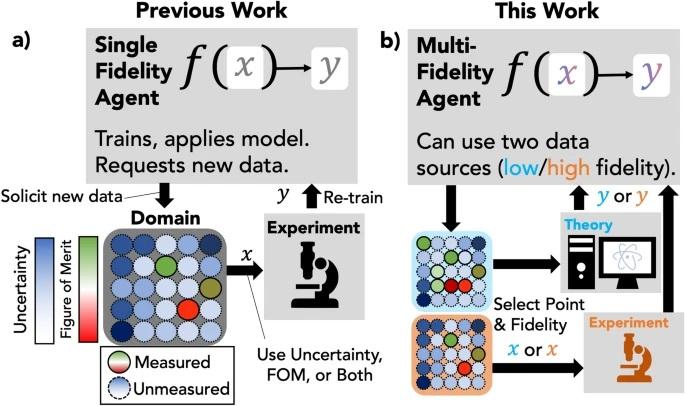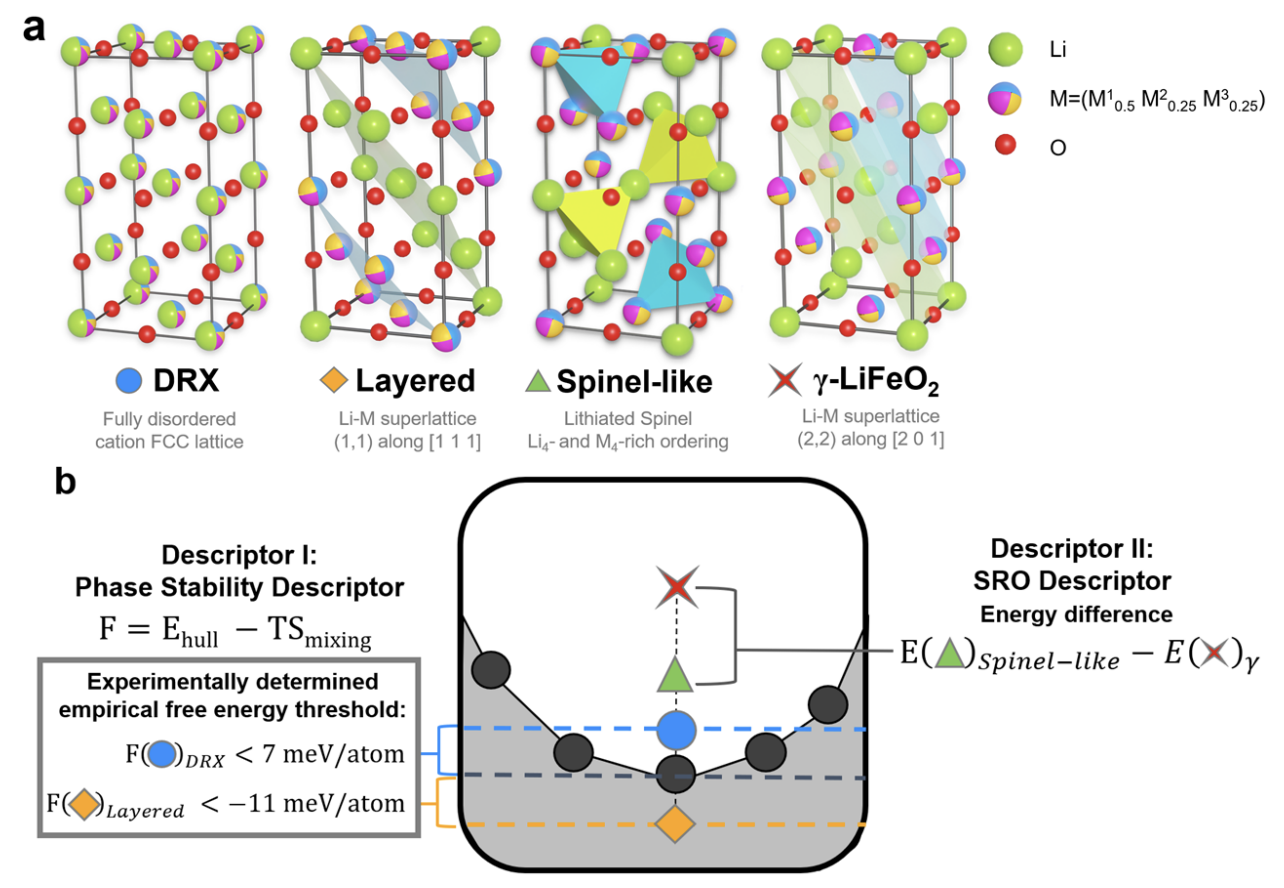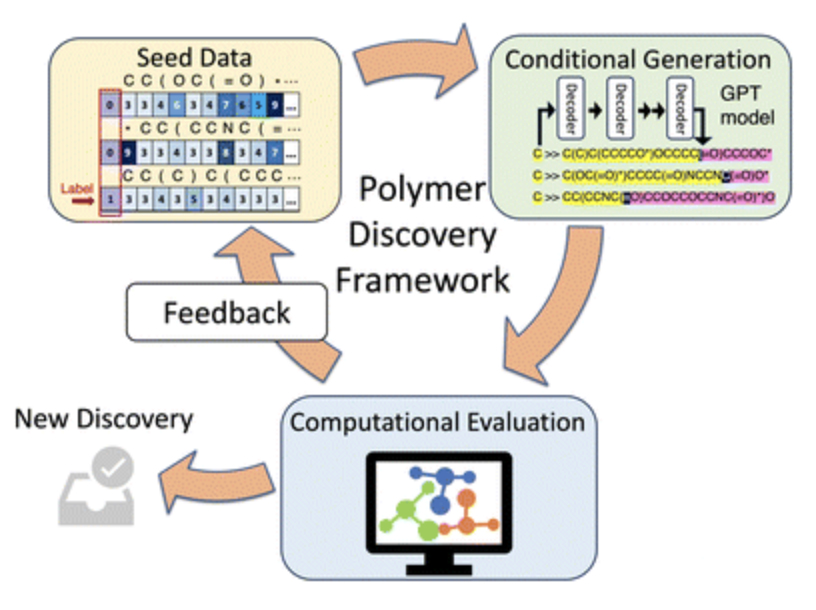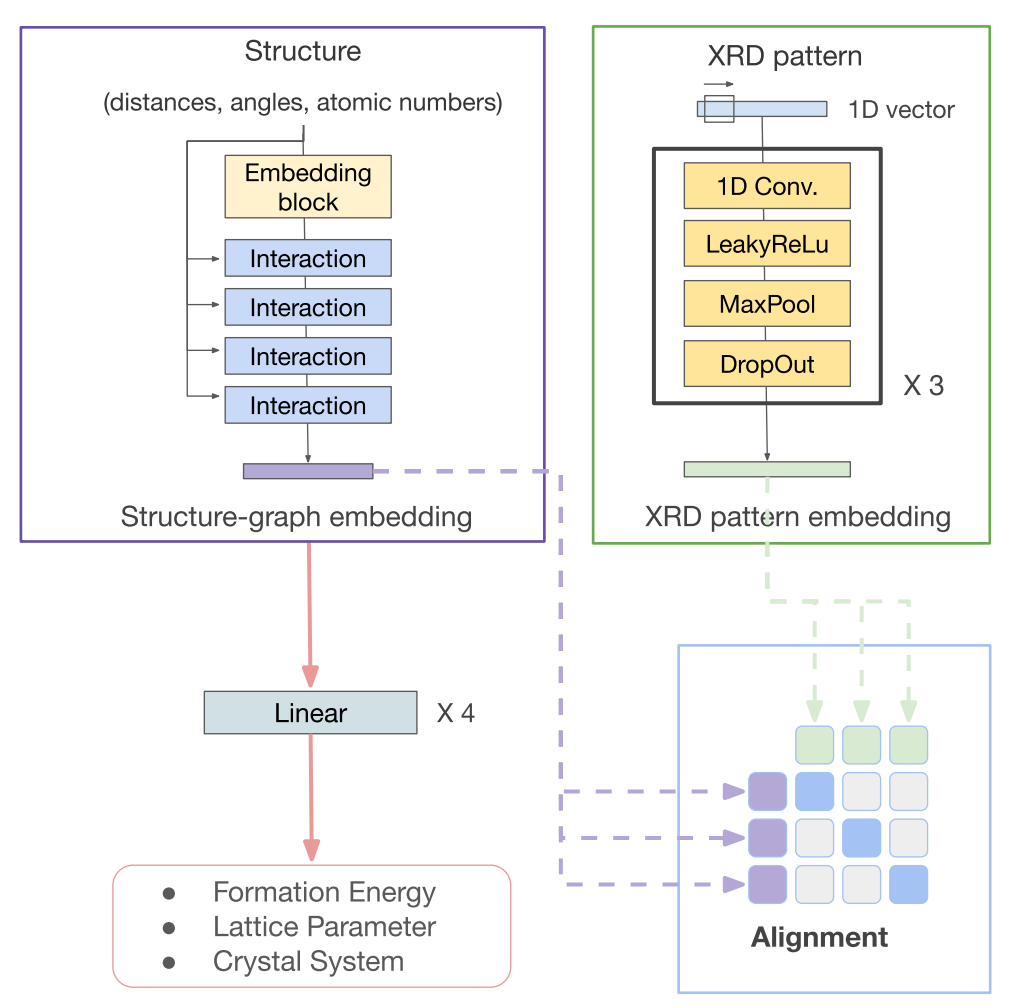
Sequential learning for materials discovery is a paradigm where a computational agent solicits new data to simultaneously update a model in service of exploration (finding the largest number of materials that meet some criteria) or exploitation (finding materials with an ideal figure of merit). In real-world discovery campaigns, new data acquisition may be costly and an optimal strategy may involve using and acquiring data with different levels of fidelity, such as first-principles calculation to supplement an experiment. In this work, we introduce agents which can operate on multiple data fidelities, and benchmark their performance on an emulated discovery campaign to find materials with desired band gap values. The fidelities of data come from the results of DFT calculations as low fidelity and experimental results as high fidelity. We demonstrate performance gains of agents which incorporate multi-fidelity data in two contexts: either using a large body of low fidelity data as a prior knowledge base or acquiring low fidelity data in-tandem with experimental data. This advance provides a tool that enables materials scientists to test various acquisition and model hyperparameters to maximize the discovery rate of their own multi-fidelity sequential learning campaigns for materials discovery. This may also serve as a reference point for those who are interested in practical strategies that can be used when multiple data sources are available for active or sequential learning campaigns. READ MORE


